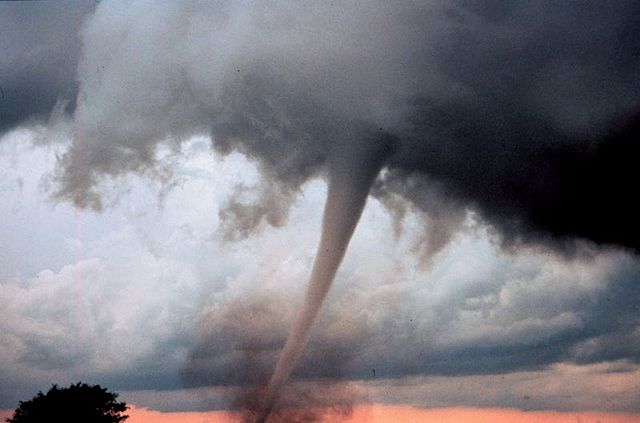
On December 21, instead of waking up to fire and brimstone, I woke up and read Mitch Horowitz's “Once More Awaiting 'The End.'” Horowitz looks at our apocalypse fetish and sees a society so jaded with the present it dreams of a break from routine, even if that break is a disaster. He also points out that, as we daydream about crisis, we are doing remarkably little to address real—literally real—issues. I like Horowitz's analysis, but there is more to our fixation on zombies, Mayan calendars, and novels about the Rapture than a desire to escape ourselves.
Behind much of the apocalypse talk and the questionably-ironic zombie preparation classes at REI is a sense that something fundamental is out of balance. It may be impossible to articulate but, on a low level, we feel a sense of disquiet.
I began thinking about disquiet as I was working on two sprawling radio projects. After recording long conversations with nearly four hundred strangers about the past and present, I began to hear a common refrain rise out of the clamor: the future was scary. Nobody could agree on the cause, but they shared a narrative structure.
Trespass. Punishment. Redemption—maybe.
The trespass could be anything from capitalist excess to withering family values, but in both cases, it resulted from hubris. Punishment always came in the form of collapse, whether environmental or economic, abrupt or incremental. If the story continued, redemption could look like a Norman Rockwell painting, Star Trek, or a massively depopulated planet of sustainable farms.
If I had been seeking our common humanity, I found it in a primal sense that we are about to enter the punishment phase.
It was tempting to dismiss the disquiet about the future as a timeless part of human nature. Maybe, as Horowitz suggests, it came from our desire for an external event to unleash personal change. Or as a reaction against living in a world of constant change. We could even chock it up to our myths. From Genesis to Prometheus, Greek legend to Hollywood extravaganza, we have a long, masochistic love affair with the narrative of overreach and punishment. This is, after all, the same narrative that rolls Cassandra out of bed in the morning, generation after generation, and she's usually wrong.
Usually.
But this nagging doubt made me take the disquiet seriously. The Americans I met were level-headed, not Cassandra-like. For them, anxiety stemmed less from feeling personally stifled than from a belief that the biggest systems supporting us were cracking at the foundations. There was a consensus that the economy was rigged, money had eroded the democratic process, and, for a large minority, environmental problems were escalating. Optimism about personal lives was mirrored by pessimism about broader change.
It is easy to say that every historical moment is unique and people always feel they inhabit pivotal moments. This is true in many ways, but attributing the disquiet to biology or psychology drags our moment outside of history and prevents us from seeing fundamentally new issues when they arise. We are more interconnected than at any point in the past and our tower of seven billion is propped up by a frail scaffolding of man-made and natural systems. As individuals, we are dwarfed less by God and Nature than by the immense scale and inertia of our own civilization. The stakes are high, the responsibility is ours alone and, perhaps for the first time, we're starting to feel it.
The Mayan calendar did not resonate because most people expected an irate Mesoamerican god to knock on the front door with a jaguar hat and a flamethrower. Instead, collapse fantasies are an excuse to confront a visceral fear that, back in reality, we have created a civilization too complex to pilot and with limited time before it strikes the rocks.
Gloomy fatalism is useless, but our apocalypse fetish could be like the strange behavior of an animal sensing the first shivers of an earthquake. If we only seek explanations within and frame our behavior as timeless, we risk overlooking problems in the world we have created outside.
(Image: http://commons.wikimedia.org/wiki/File:Occluded_mesocyclone_tornado5_-_NOAA.jpg, a Creative Commons Attribution (2.0) image from 50279388@N03's photostream)
DIGITAL JUICE
No comments:
Post a Comment
Thank's!